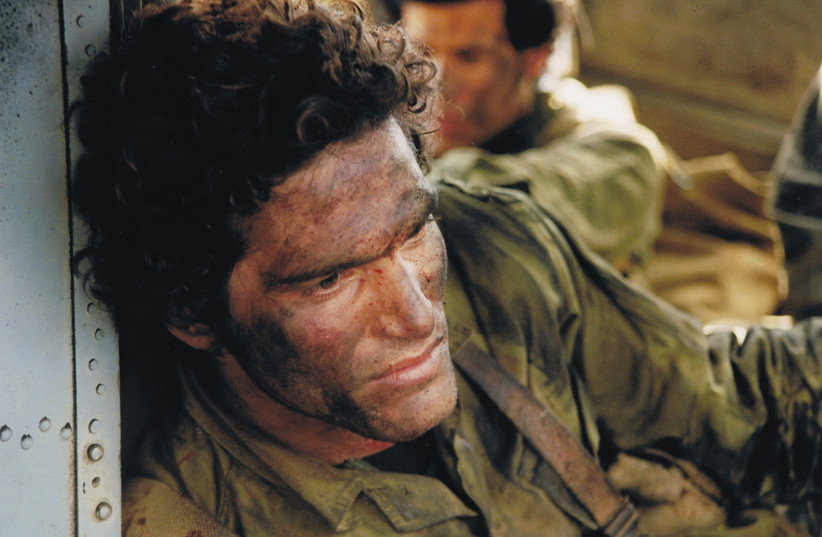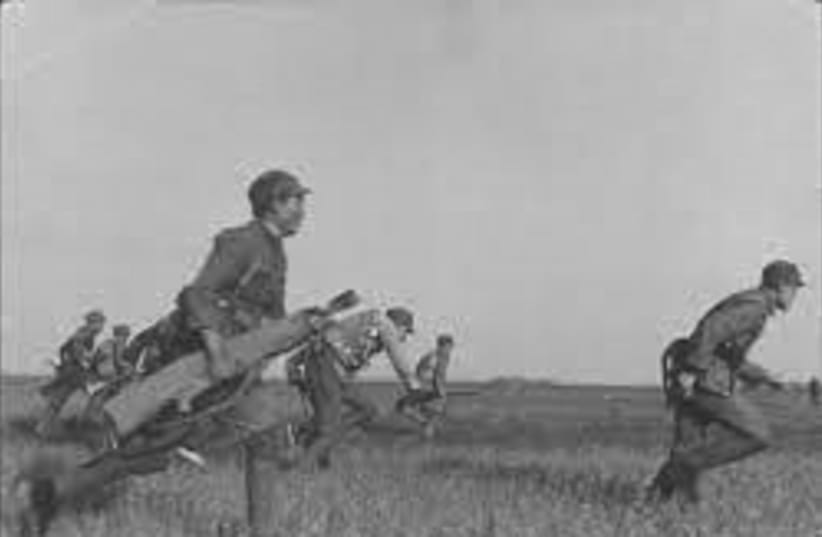Why have so many years gone by since the Yom Kippur War of 1973 and so few Israeli filmmakers have turned their hands to depicting it? There have been a plethora of television documentaries about bereavement and about the soldiers – those who survived and those who didn’t – but, not many feature films have been made about this important war in Israel’s history.
Why have our most successful filmmakers, all of whom have made serious (anti-)war films, not made fictional accounts of the Yom Kippur War?
The answer is certainly complicated, mostly dealing with the deep and long-lasting trauma of the war, which makes it so difficult to confront.
“[The Yom Kippur War is] the most traumatic war that Israel ever went through, for a number of reasons: its intensiveness; the number of deaths, wounded, and victims of shell shock during such a short period; the surprise; and the downfall after the euphoria of the Six Day War.”
Aner Preminger, Hebrew University of Jerusalem
According to Aner Preminger, who teaches cinema studies at Hebrew University and is a well-known filmmaker, the Yom Kippur War is “the most traumatic war that Israel ever went through, for a number of reasons: its intensiveness; the number of deaths, wounded, and victims of shell shock during such a short period; the surprise; and the downfall after the euphoria of the Six Day War,” he says.
“In fact, we are still today in the post-traumatic period of this war,” Preminger says. “Dealing face-on with such a difficult wound of trauma is complex and complicated, psychologically speaking. It is more natural to hide from it and to deal with it only from afar.”

According to this view, the trauma of the surprise attack and the terrible losses on the battlefield of the Yom Kippur War remain very much with us, and therefore it is very difficult to portray it in fictional films.
Another reason that Israeli filmmakers have kept away from the difficult subject matter of this war has to do with the fact that this particular war was accepted – throughout Israeli society – as a war of defense, a war for which we had no choice, thereby making it difficult to look at it critically: cinematically, politically or militarily.
In contrast, the War in Lebanon from 1982-2000 lent itself to criticism from the very beginning. It was a war of choice, a war entered into recklessly and without forethought about the long-term implications, which provided excellent material that filmmakers could easily dig their teeth into.
As a result, we have some extraordinary anti-war films such as Ari Folman’s Waltz with Bashir, a prize-winning animated documentary; Shmulik Maoz’s Lebanon, a hard-hitting drama which takes place almost entirely within a tank; Eran Riklis’s Cup Final, about an Israeli soldier kidnapped by the PLO; Haim Bouzaglo’s Time of the Cherries, a surrealistic commentary on the futility of war; and Joseph Cedar’s Beaufort, an intense look at life at a military outpost.
It is also interesting to note that even films which are set in other periods – such as Renen Schorr’s coming-of-age film Late Summer Blues, and Rafi Bukaee’s surrealistic Avanti Popolo, anti-war films both produced in 1986 – were heavily influenced by the period in which they were produced. The former was set during the War of Attrition (in the years following the Six Day War of 1967), the latter during the Six Day War.
Both films reflect the new feeling of vulnerability, which was an outcome of the Yom Kippur War, and the controversial nature of the War in Lebanon, which created an atmosphere in the 1980s that encouraged and permitted films critical of the army and the government.
Self-Censorship
Israeli filmmakers self-censor when thinking about making films that deal with the Holocaust. Acknowledging the unevenness of the comparison between the Holocaust and the Yom Kippur War, it is fair to say that both have left scars on our collective psyche. When dealing with the Holocaust, Israeli filmmakers have dealt more with the survivors and the aftermath and not with the atrocities and the death camps per se. Similarly with the subject of the Yom Kippur War.
In two major feature films – The Vulture by Yaki Yosha, produced in 1981, and Shellshock by Yoel Sharon in 1988 – the filmmakers dealt with the survivors and the aftermath. They both succeeded in keeping away from the war itself, and instead focused on its aftermath, and the very serious ways that this affected Israeli society.
Exploring the psychological difficulties of returning to normal life in the aftermath of war, Sharon, himself badly injured in the Yom Kippur War, has simultaneously made a film about his own story, trying to recall certain moments of his life that were missing from his memory. Shellshock is the poignant story of two men suffering from post-traumatic stress in the aftermath of the Yom Kippur War.
A literary adaptation, Yosha’s The Vulture, based on the novel The Last Jew by Yoram Kaniuk, showcased the effects of war on the souls of young Israelis and the understandable need for grieving parents to idealize their young sons who have been sacrificed in battle.
BUT PERHAPS the best-known film about the Yom Kippur War, and the exception to the above-mentioned tendency toward self-censorship, is Amos Gitai’s Kippur (2000), which was not about the aftermath, but rather about the blood and gore of the military experience.
Produced just as Israel was pulling out of the “mud” of Lebanon at the very end of the 1990s, Kippur can be seen as a general anti-war statement, even though it is set during the opening days of the Yom Kippur War.
There is no heroism or triumph in this war film; rather, it is a hard-hitting portrayal of the horrors and unrelenting nature of war, providing the viewer with a visceral experience.
Based on the director’s wartime experiences as a reserve medic on the Golan Heights fighting against the Syrians, the film includes dramatized scenes of war, shot in real time, which are devastating, traumatic and grimly realistic.
In addition to these three films, a TV series was produced recently for broadcast on KAN TV (Israel’s public television station). According to Hannah Brown, The Jerusalem Post’s film critic, Valley of Tears (2020), directed by Yaron Zilberman, is “a gripping and emotional series that presents a snapshot of Israeli society in the early ’70s that illuminates how the war impacted society.”
In my conversations with Israelis, I have discovered that many found the series excruciatingly hard-hitting and difficult to watch due to its realism in portraying the war.
According to Preminger, the most important film about the Yom Kippur War was an experimental documentary by David Perlov entitled Diary (1983). The film is a personal diary that provides a view of the world through the eyes of one family and shows how changing reality affects them. Most of the first chapter of this six-hour film includes the Yom Kippur War and how it creeps into the lives of the family.
Moving Away from War Films
Perhaps the wound of the Yom Kippur War will continue to remain mostly buried, as we watch Israeli filmmaking moving gradually away from the heroism and political nature of the earlier period. In recent years, Israeli films are less about wars, and the “big issues”; instead, they are dealing with many other complex, sensitive and socially oriented ones.
Although still seen on the background of the political reality, contemporary Israeli films show a new openness and inclusiveness that was not as prevalent in previous years. The new films deal with issues of gender, societal alienation, immigrants in our midst, and issues of family.
As globalization has affected us deeply, our films are offering subject matter that is both particularistic and universal at the same time, although still uniquely Israeli – even as they speak to an international audience.
Amy Kronish has lived in Jerusalem for 43 years. She is the author of two books on Israeli cinema and blogs at www.israelfilm.blogspot.com•
